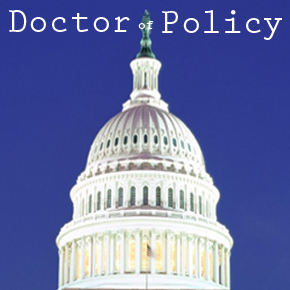For the past few months of medical school, one of my family members has been sick in the hospital.
“It’s just a precautionary hospitalization, you know, to make sure nothing else is wrong.”
“It’ll all be okay, don’t you believe that?”
“What is the sense in worrying?”
Every other person in my family assured me I have nothing to fear, that I shouldn’t toss and turn in my bed at night feeling powerless because I’m in Philadelphia, thousands of miles away from India. Most days I reminded myself that to go to India I must first drag myself across the finish line of first year. But late at night alone in my apartment, I was haunted by lab values. I wracked my brain over the latest hemoglobin, sodium, potassium and chest x-ray. What am I missing? Is there something I can see that doctors with hundreds of years of collective experience cannot? The reality is that I didn’t have the answers for the people I love, and that thought terrified me more than anything.
Still, I am often surprised how much information I subconsciously retained from coursework. After every exam I could swear my brain’s proverbial slate is wiped clean, but I have found that deep in the corners of my mind there exists a treasure trove of factoids that return when I least expect them.
After weeks of silently crying myself to sleep, I picked up the phone and called my dad, a doctor, and told him about a pattern I identified in the labs. “It’s kidney failure, isn’t it? The pneumonia and the UTI are just distractors right now,” I choked out, practically aspirating cups of my own tears. For 15 minutes, my dad interrogated me as if we were on rounds. He had me explain the labs, develop a differential diagnosis and identify potential treatments. At the end of the conversation he said, “You talked through that whole case just like a doctor. I am so proud of you. It’s okay to be emotional, but don’t let yourself stand in the way of making an impact.”
I began to wonder what impact I could possibly make; I certainly do not have the social capital to make an impressionable opinion. I let me father know these feelings as I worked to control my tears. “Maybe not, but you can contribute positive information to your family,” my father said. “You can help explain what the treatments options are and help to clarify after the doctor leaves. You can relay all of this while always remembering that quality of life comes first here.”
Reflecting now, I don’t know if I have the strength to talk to my family about diagnosis or treatment regimens just yet. I want to give myself time to process what I’m feeling. Still, I have been able to take a step back and appreciate what happened. What felt like a passive imbibing of knowledge throughout the past year has come to have practical consequences. At the end of my first year I am able to understand the significance of a string of lab values. I may not be confident, and the results may be terrifying at times, but I am learning. I am slowly but surely becoming a doctor, and I am doing just what my grandfather predicted nearly 24 years ago as he sat in labor and delivery with my parents.
“Professori” he called me, barely a few minutes old, a nickname he gave because he knows me better than I know myself, and because he predicted that I would forever blend academia with clinical practice. Yes, this newfound knowledge makes me all-too-aware of real life problems. And although this may feels like a curse at times, I have also been blessed with the opportunity to take part in the legacy my grandfather deserves, and have a chance to help advocate for his needs. In this difficult experience, my calling to be a physician has been reaffirmed, and there is no bigger gift.
Doctor of Policy is a column dedicated to exploring and challenging contemporary health policy issues, especially in the fields of behavioral health, health care access, and inclusion, all from the eyes of a public health girl in a basic sciences world.

